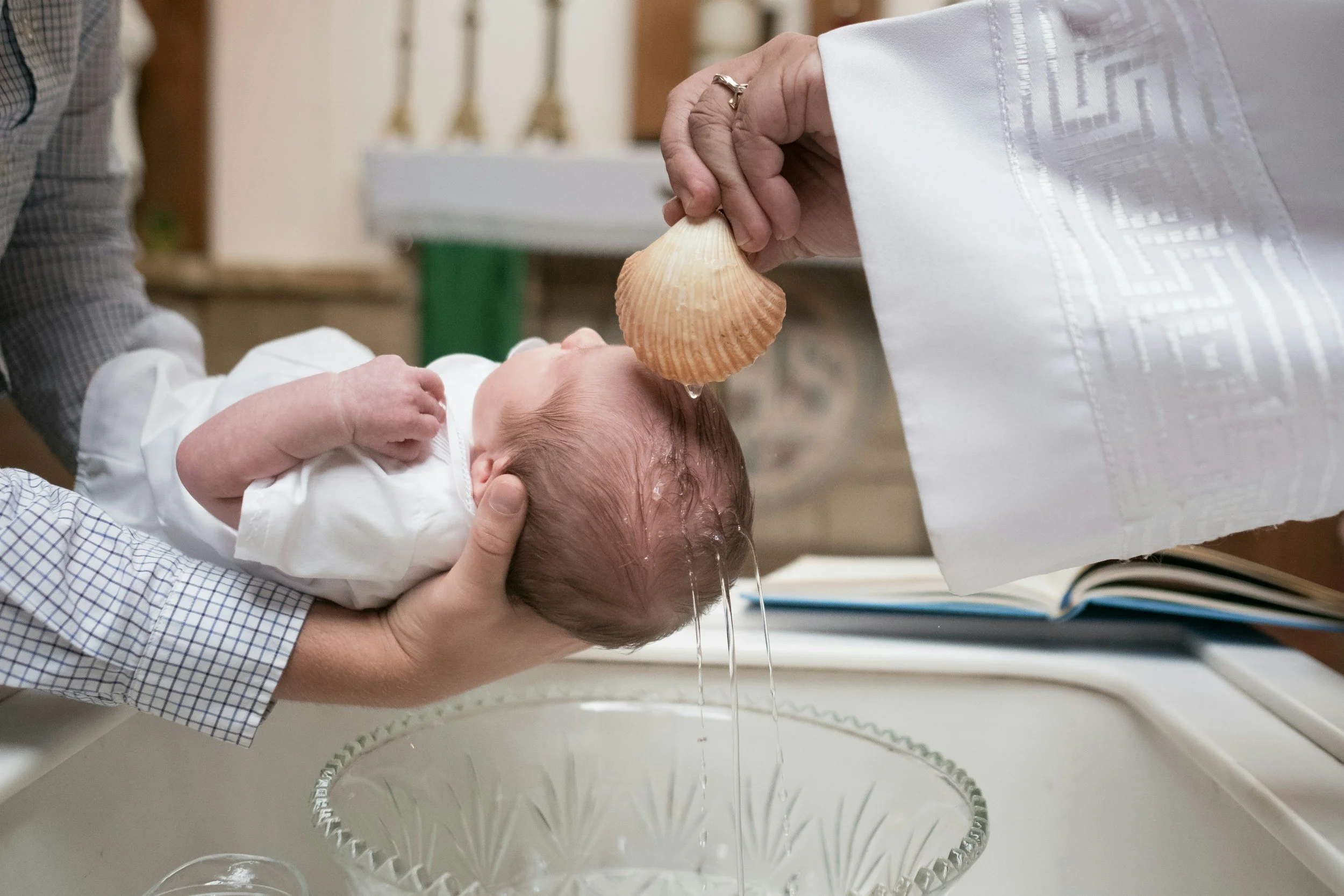Richard Ostling
(ANALYSIS) Former Irish President Mary McAleese argues that infant baptism violates children’s human rights by imposing church membership without consent. Critics respond that parents possess religious freedom in child-rearing, note historical and biblical defenses of infant baptism, and compare similar birth rituals across Christianity, Judaism, Islam, Hinduism, Buddhism and Sikhism.
(ANALYSIS) President Trump’s deportation drive is reshaping the 2026 battle for Congress, but celebrity protests and mass demonstrations show little evidence of moving voters. The real test may come in churches, especially among Catholics, whose leaders condemn mass deportations and whose increasingly fluid voting patterns could decide close races.
(ANALYSIS) As the complexities in Venezuela continue to evolve, President Donald Trump held his first face-to-face meeting with democratic opposition leader Maria Corina Machado. Universal consensus says her party won the 2024 presidential vote by two-thirds or better, whereupon dictator Nicolás Maduro, now imprisoned in New York City, stole the office.
(ANALYSIS) You’ve seen the headlines about Iran’s uprising, but there is a deeper story: Two-thirds of the nation’s mosques, 50,000 out of 75,000, have been closed due to declining worship attendance, according to a high-ranking cleric. What does that mean for Iran and for Islam?
(ANALYSIS) Lots. And no expert is better equipped to portray the turbulence than Washington University political scientist Ryan Burge.
(ANALYSIS) How should Christians honor the Virgin Mary’s unique status as the mother of Jesus Christ? How speak of her? What believe about her?
(ANALYSIS) A widespread populist rebellion against the well-educated and well-paid “elite” that has ruled culture provides the framework for actions that would have been inconceivable not long ago. Religious elites, too, face resistance and a weakened ability to overcome such disillusionment across society, and also within their own ranks.
(ANALYSIS) The 2025 Story of the Year in religion is obviously the surprise May 8 election of the first Pope from the United States, Leo XIV. The second-place story, less publicized but important, is the Oct. 16 proclamation of a planned split among the world’s 97 million Anglican Christians over their anguishing dispute on the Bible and sexual morality.
(ANALYSIS) Mamdani is America’s first high-profile Muslim office-holder. The campaign’s competing accusations of “antisemitism” versus “Islamophobia” raise obvious concerns for Muslims, and for Jews, for whom New York has long been the most important town west of Tel Aviv. Signals are mixed on whether the Mamdani era will improve, or worsen, relations between these communities.
(ANALYSIS) As media pundits over-interpret the nationwide impact of elections in New York City, New Jersey, Virginia and California, let’s contemplate this: What do the data on religious dynamics say about prospects for a rather demoralized Democratic Party in 2026-2032, and whether a more centrist strategy might help?
(ANALYSIS) With its pending case of Christian psychological counselor Kaley Chiles, the U.S. Supreme Court faces a potentially momentous choice between her claim of free speech during therapy, over against Colorado’s professional licensing standards that forbid so-called “conversion therapy” regarding homosexual orientation and transgender transitions.
(ANALYSIS) If Charlie Kirk’s movement accomplishes its ambitious goals, it would rival America’s significant evangelical youth revival that erupted after World War II. “Parachurch” organizations formed during that era, like InterVarsity, The Navigators, Cru and YoungLife are all active today.
(ANALYSIS) The young Donald Trump administration is unusually focused on the issue of religious liberty — operating through two newly formed organizations that emphasize concerns raised by those conservative Catholics and Protestants who are a crucial element in the president’s political “base.”
The only humans yet to set foot on the Moon are American astronauts in the series of six Apollo landings that ended 53 years ago. But last January, President Donald Trump’s Inaugural Address proclaimed a far more extraordinary goal: “We will pursue our manifest destiny into the stars, launching American astronauts to plant the stars and stripes on the planet Mars. . . . Americans are explorers, builders, innovators, entrepreneurs, and pioneers. The spirit of the frontier is written into our hearts. The call of the next great adventure resounds from within our souls.”
(ANALYSIS) Despite some major differences, newspapers and religion share notable similarities in their societal roles, including defining norms, creating a sense of a shared community, while maintaining rituals. These parallels are often rooted in the human need to make sense of a complex world. Over the years, Hollywood has immortalized their importance with a series of movies.
(ANALYSIS) This is a landmark year for what’s variously labeled “medical assistance in dying” (MAID), “doctor-assisted suicide,” death by choice,” “death with dignity,” “the right to die,” “euthanasia” or “mercy killing.” As this is written, Great Britain is on the brink of joining the West European nations that allow suicide under specified conditions.
(ANALYSIS) With two dramatic actions, the “Religious Right” is suddenly prodding the U.S. Supreme Court to overturn its historic 2015 Obergefell decision, which legalized same-sex marriage nationwide. Such a radical and unpopular switch after only 10 years might seem implausible — but a close parallel already happened in the 2022 Dobbs decision.
(ANALYSIS) Among the little-noticed aspects of the 2024 U.S. election is Muslims’ substantial 33% vote for Donald Trump — with a remarkable 42% backing from those who attend mosque weekly. That’s an increase from past elections.
(ANALYSIS) Ask Harvard University. But first, British philosopher John Locke said each person has God-given rights to life, liberty, and property. America’s Declaration of Independence replaced “property” with “the Pursuit of Happiness” as among humans’ “unalienable Rights … endowed by their Creator.” On the brink of the Declaration’s 250th anniversary, just how can happiness be pursued?
(ANALYSIS) Unless a federal court challenge succeeds, American clergy are now free to endorse political candidates in sermons during worship. The Internal Revenue Service has just erased the pulpit prohibition that for 71 years was among conditions to obtain federal tax exemption on income and donor gifts. The impact is tough to predict.
(ANALYSIS) One hundred years ago this month, Americans were transfixed as a Tennessee courtroom hosted challenge to the state’s new law barring “the teaching of the Evolution Theory” in public schools, including colleges. The prohibition covered “any theory that denies the story of the Divine Creation of man as taught in the Bible.
(ANALYSIS) Who voted how in 2024? The two most important surveys on U.S. election patterns are now available and among the findings is this bulletin: Along with its various current woes, in the long term the Democratic Party faces weakening support from many religious groups that is nearing a political emergency. No effective game plan for a turnaround is in sight.
(ANALYSIS) All that and more underscores the significance of a long-awaited and definitive new biography, out now: “Joseph Smith: The Rise and Fall of an American Prophet” (Yale University Press) by historian John G. Turner of George Mason University. It is the first biography to benefit from official publication of the 27-volume Joseph Smith Papers.
(ANALYSIS) Leo’s elevation broke the longstanding rule of thumb that no American, as a citizen of a superpower, could or even should become pope. But that did not trouble the College of Cardinals in May, and leading up to his election Cardinal Robert Prevost felt free to critique current American policies.
How will Leo’s formative three decades in the United States before life in Peru and Rome shape his church of 1.4 billion souls? Yes, the cardinals must be thinking an American could solve the Holy See’s $98 million annual deficit, severely underfunded pensions, and declining donations. They may also hope his solid administrative experience might tame the curia, the Vatican’s notoriously Italianate “deep state.”
(ANALYSIS) There are two reasons, translations and texts, both of which have cropped up in the news of religion this year. The venerable King James Version (KJV) appeared without changes over centuries. Today, experts continually reconsider the best available evidence to improve our English Bibles.
(ANALYSIS) Despite the disruptions of global economics and trade, and a couple dozen other hot disputes, let's not neglect such perennial realities as the way religion can affect politics, and vice versa. As President Donald Trump promised, this is a central aspect of his agenda, underscored by the recent establishment of the new Religious Liberty Commission.
(ANALYSIS) The big U.S. Supreme Court decisions due in the coming two months include three cases on the religion clauses in the Constitution’s Bill of Rights. At issue: Can a state deny a tax benefit to religious charities it thinks are not “religious” enough, can parents withdraw public elementary children from classes on gender identity and whether the state can fund a religious charter school.
Saturday’s majestic open-air funeral for Pope Francis is now followed by election of the next pope by the College of Cardinals in a process shrouded in secrecy. Indeed, the Latin root for “conclave” means “locked room”). Its legendary status was underscored in January when the fictionalized movie thriller “Conclave” was nominated for Best Picture and other Oscars.






























(ANALYSIS) After 188 years of illustrious efforts worldwide, the PCUSA’s foreign mission agency is disbanding. The denomination said it would no longer dispatch a corps of career missionaries overseas, though it will continue to aid international partners.